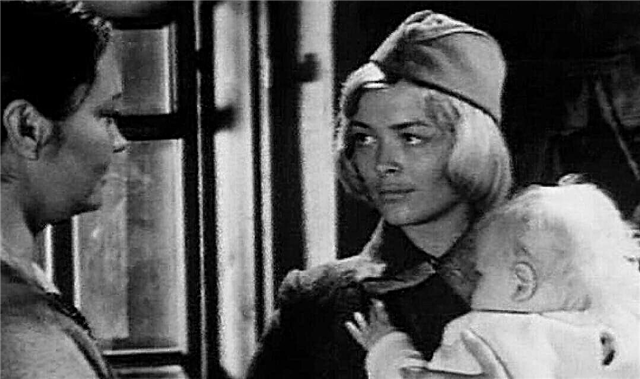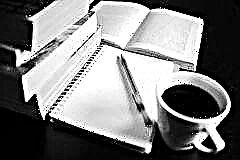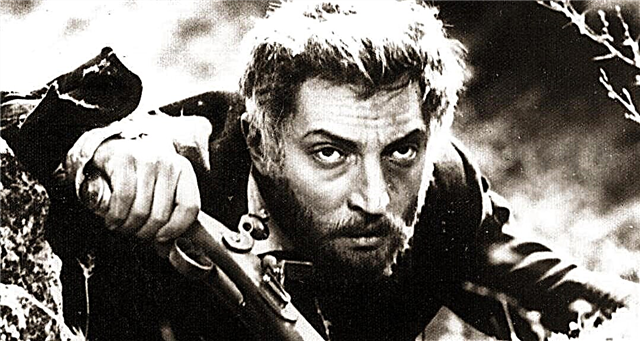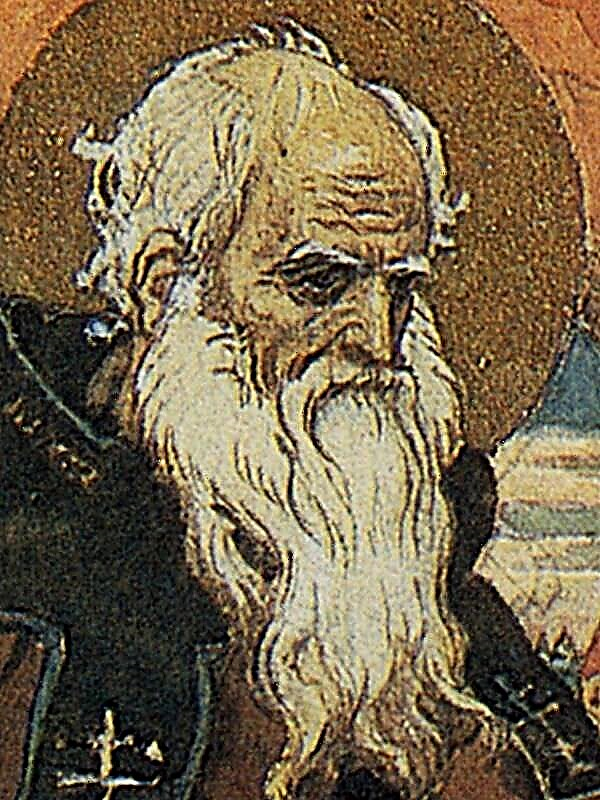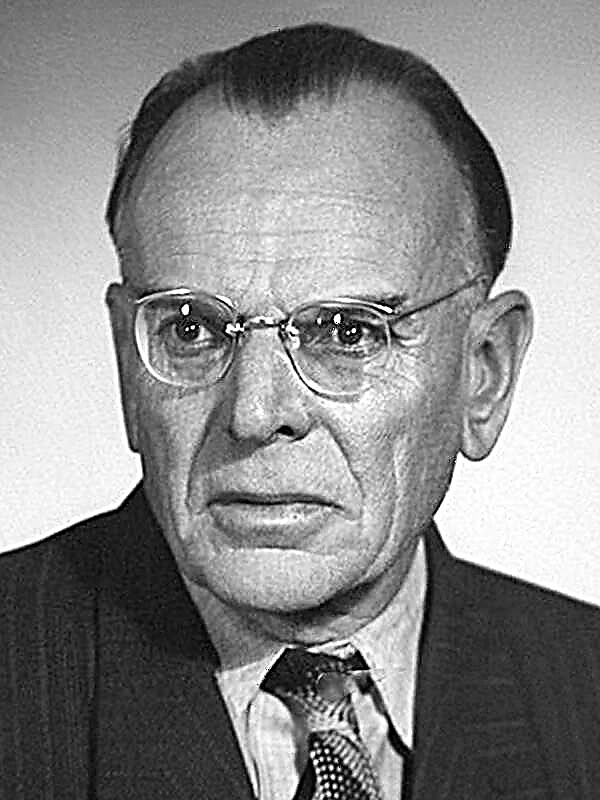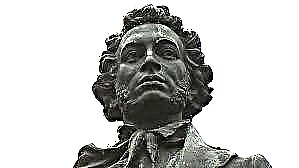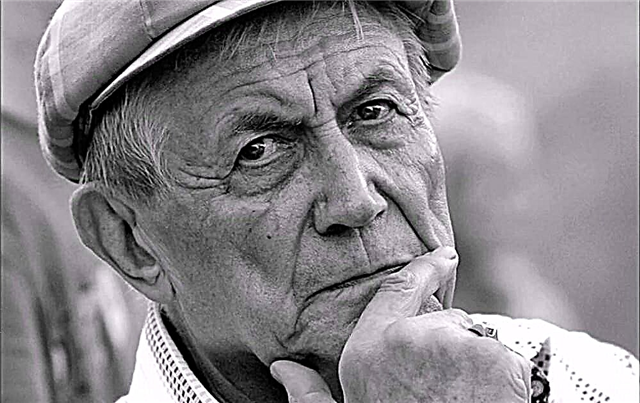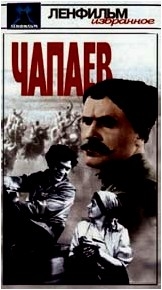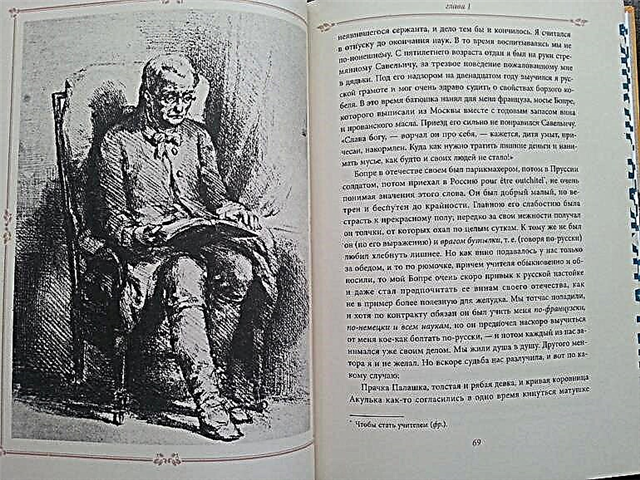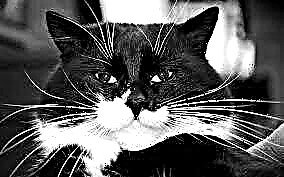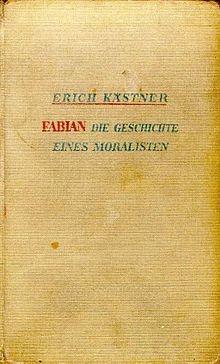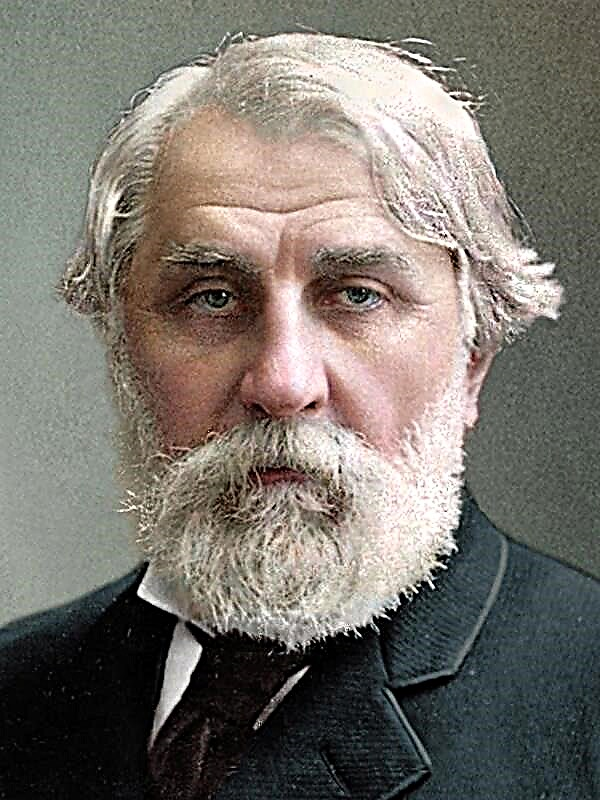The poem is autobiographical in nature.
1
Mayakovsky begins his poem with a statement that the bygone days have passed. It is time to abandon epics, epics and epics and move on to a short telegram style.
By telegram / fly, / stanza!
Inflamed lip / bend / and drink
from the river / by name - "Fact".
Time itself “buzzes with a telegraph string” and tells the truth about what happened to the country and the poet himself.
Mayakovsky wants this book to pull the reader out of his “apartment world”, fill it with “building and rebelling power” and make him remember the day that the poet considered the most significant in the history of his country.
2
The poet describes a popular rebellion. The peasants, dressed in soldiers' greatcoats and forcibly driven to war, are starving and no longer want to hear the false promises of the interim government. They were promised freedom, rights and land, but everything turned out to be a lie, and the people shouted: “Beat!”
The parties in the Duma give their strength and votes to the Bolsheviks, and there is a rumor in the villages, "what kind of men are some kind of" big men "."
3
In the royal palace, built by Rastrelli, settled "swivel shot" and "attorney" Kerensky. Luxury, fame and power turned his head "no worse than forty degrees."
“Adjutatics” spread rumors about how people love Kerensky. When the "prime minister swims over Nevsky," the ladies and children of puzanchiki "throw him" flowers and rose flowers. " If Kerensky gets bored from idleness, he will quickly appoint himself a minister.
He has one answer to the riots: arrest, catch, send the Cossacks or the punitive squad. But Kerensky dreams of conspiring with Kornilov and sending Emperor Nicholas II not “to the water and the black crust”, but to the English cousin King George.
Kerensky "is sewn to history,‹ ... ›it is painted - and Brodsky and Repin."
4
Mayakovsky describes the dialogue between the activist of the Cadet Party Kuskova and the leader of this party, Foreign Minister Milyukov. The conversation mimics the conversation of Pushkin’s Tatiana with the nanny.
Kuskova, whom Mayakovsky calls either Madame or Old Woman, complains about stuffiness. Milyukov recalls the old were fables, and, in order to console a crying pupil, he promises to give her “freedoms and constitutions”. Finally, Kuskova confesses to the “nanny” to Milyukov, which is burning with passion for “darling Sasha” - Kerensky.
"The mustached nanny" Milyukov is happy - "under Nikolai and under Sasha we will save our income."
5
The monarchist, staff captain Popov, and a certain liberal adjutant feast at the restaurant, "hung up to the navel". Popov is convinced that "the Jews sell the Jews to the Jews," and this country does not expect anything good. He complains about the orderly, who, in response to the order “to navigate the schibbletin to see the snout in it,” sent the staff captain to his mother.
The adjutant objects: he is not a monarchist, or even a socialist, but “socialism needs a basis. ‹...› Culture is needed. And we are Asia-s. ” Socialism should not be introduced immediately, but "gradually, little by little, one by one, one by one, today, tomorrow, twenty years later." The adjutant does not like those who have “crosses and ribbons from Wilhelm” and who ride in sealed wagons, but also “Lenin, who sows trouble”, cannot be allowed to power.
The friends hope for the help of the Cossacks and curse the Bolsheviks until they get drunk.
Meanwhile, in the basements, the Bolsheviks are distributing weapons, ammunition and are planning an assault on the Winter Palace.
6
The Bolsheviks are preparing for an uprising, "surrounding the Winter Palace in the ring." In Smolny, Ilyich and his supporters think “of battles and troops”, and “stick flags in front of the map‹ ... ›.”
Detachments of workers, / sailors, / goals -
reached, / with a bayonet of domertsav,
as if / hands / came together on the throat,
sleek / throat / palace.
Mayakovsky presents the capture of the Winter Palace as a battle of two huge shadows. The shadow of the palace squeezed the torso of the crowd’s shadow with her lattice hands. The defenders of the Winter Palace are thinning, the battalions surrender one by one, "and Kerensky hid, try to lure him."
And in the palace, in "upholstered furniture", ministers sit. Nobody listens to them anymore, and they are "ready to fall over the ripening pear as soon as they are shocked."
And the glass of the palace windows trembled - it was hit by the “forts of Petropavlovka”, and after them the six-inch Aurora fluttered. The rebellion begins. The soldiers attack every staircase and room of the Winter Palace, "stepping over the junkers."
Thirteen ministers understand that it’s stupid to resist and give up.
The chairman of the Antonov Revolutionary Committee announces the interim government deposed. In Smolny, the crowd sings: “This is our last ...”, and the machine gun stops talking, and the first tram leaves already under socialism.
7
The poet describes Petersburg drowned in the dusk. The streets are empty, only in some places near the burning fires soldiers are warming themselves. Near one of these bonfires, Mayakovsky meets Alexander Blok.
Blok complains that the peasants picked up the song of the uprising, sung in St. Petersburg, and burned a library in his estate. The villages rebelled against the fierce landowners. The party took over “this whirlwind‹ ... ›and fire smoke” and built in rows.
8
Winter, frost, but the Communists are hot - they work on a labor subbotnik. They have the right to finish work earlier and leave, but they will not do this because they load their firewood into their wagons to warm their comrades.
Here "socialism: the free labor of freely gathered people" takes place.
9
The rich cannot understand, "what kind of" socialist fatherland "is this", what people living in it are excited about, what are they ready to fight for. After all, "you can die for your land, but how to die for the common"? For capitalists, “a wife, an apartment, and a current bill - this is the fatherland, paradise”, for which one can go to death.
The poet answers the capitalists:
Listen, / national drone, -
our day is good because it is difficult.
10
The capitalists, "who have accused the well-fed jaws," understand, "that if Russia clawed in Russia, there would be an abyss to the whole bourgeois bird." Therefore, "a different bastard and a bitch sews overcoats of gray color" - the European bourgeoisie wants to strangle the young Soviet state and sends troops to the aid of the "whites".
Warships from Marseille and Dover sail to Novorossiysk and Arkhangelsk, on them - well-fed soldiers. Submarines, aircraft carriers and toxic gases are used.
All seas - white, and Black, and Caspian, and Baltic - were occupied by "the mistress of the seas, Bulldog Britain." The bourgeoisie are rowing the heat with the wrong hands - the "barons and princes under-shot" do the dirty work for them.
The army of Yudenich goes to Peter with tanks and convoys full of food. In Siberia, Admiral Kolchak is in charge with the Czechs, and in the Crimea, Wrangel. At dinners, the colonels brag about “taking a sip of whiskey,” as they killed dozens of “Bolshevik monsters.”
The country is drowning in blood, villages are burning. The starving Bolsheviks have nowhere to go, they are in Moscow, as on the island "with Lenin in the head and with a gun in his hand."
11
Time passes. Mayakovsky settles in the house of the Supreme Economic Council, where "all sorts of people and classes live." The inhabitants of the house are starving, heating the rooms with “Shakespearean volumes,” and “potato is their feast.” The whole life is reflected in this house, and the poet is boiled in it, as in a stone cauldron.
Firing / squatting / squatting,
at rest / eyes to the window,
so it was / more visible
i / in the boat room
swam / three thousand days.
12
Mayakovsky describes a hungry Moscow life. Speculators are on duty near Glavtop - “hug, kiss, kill by the mouth.” Lumberjacks stand in line for breadcards; they are only entitled to a pound of bread of the highest category. But they understand: now the main thing is to fend off the “whites”.
I wanted to, / belt - / tighter,
in the hands of a rifle / and / to the front.
The best rations of the "irreplaceable" - they "the board issued a apricot and jam." The rich eat in commercial restaurants.Scientists under the special mandate of Lunacharsky rely on butter, sugar, meat, firewood and a "fur coat of wide consumption", but from the commissioner they receive only a "headdress" and "a foot by rapping."
13
Mayakovsky lives on twelve square arshins with friends - Lily and Osey Brik - and a dog, Puppy. Having taken the sleigh and put on a ragged hat, the poet goes to get firewood and soon brings home a completely frozen log from a broken fence. He brought it, cut it with a penknife, and melted the stove. The inhabitants of the room fell asleep and nearly went dark.
The poet recalls a frosty winter, a pink sunset sky and clouds, similar to ships.
Only on a frosty night, “with your teeth together,” you will understand that “you can’t spare either a blanket or a caress for people” and it’s impossible to stop loving the earth, “with which it was cold”.
14
Many died this winter. The poet does not want to touch the "Volga pain" - the starving Volga. Mayakovsky’s work is inspired only by the eyes of his beloved - “round and brown, hot to burning.”
The poet is informed that her beloved was swollen from hunger. The doctor says that vitamins are needed - fresh vegetables. Instead of flowers, Mayakovsky carries two carrots to his lover.
I / gave a lot / confection yes bouquets,
but more / all / expensive gifts
I remember / this precious carrot
and half / log / birch firewood.
“With greens and affection” the poet came out beloved.
The poet does not think of himself: “It’s easier for me than everyone - I am Mayakovsky. I sit and eat a piece of horse. ” He pities his sister, who has to change things for food. Nevertheless, the poet shouts in the face of America "round the restaurant dishes" that he loves his impoverished land, "with which he was starving together."
15
Mayakovsky continues to talk about hunger, that "there are no fuels for factory belly." The poet describes how workers in patched boots are digging out a snow-covered locomotive.
“Narrow-minded rumors-pigs” creep across Moscow that “Denikin approaches the Tula core itself, the powder core”. “Whisper-voiced kitchen choirs” sing that there will be plenty of food. The inhabitants are waiting for Denikin the Liberator. But the city woke up, the party called for arms, and the "red" squadrons were already jumping south.
Kaplan shoots Lenin - it is "long-nosed pikes", enemies of the Soviet regime. But “the Lubyanka paw of Che-ka lies on the predator” and the wind already rattles the lists of those shot.
Everyday midges hide and fall silent, and in the morning the happy news: Lenin is alive. The Communists "kept it, so much so that the blood came out from under the nails."
The poet saw the generous southern regions, but only for "the land that he conquered and half-dead healed", you can go "for life, for work, for celebration and death."
16
Mayakovsky describes the flight of interventionists from the Crimea, about whom a “quiet Jew” told him.
Everyone fleeing, dissatisfied with the Soviet regime, - and "a pure public, and a soldier." Everywhere clutter and crush. Half-dressed people, having forgotten decency, punch their way into the ships with their fists, regardless of the floor and ranks.
"Slamming the door, dry as a report," Wrangel in black Circassian leaves the headquarters. Before boarding a waiting boat, the commander-in-chief falls to his knees, kisses his native land three times and baptizes the city.
So “yesterday's Russians”, “torn from the machine and plowing”, to “milk the cows in Argentina” and “measure in the African pits” leave their homeland. Sail away on Turkish ships, accompanied by "two American destroyers." And after them rushes: "They stole the treasury and fled, scum."
A telegram was sent to the Soviet government: "Wrangel is overturned into the sea," a point in the war. The Communists drop their weapons and disperse toward the uncultivated fields and cooled blast furnaces.
17
The poet does not want to praise everything that has been done. He "could demolish the half-fatherland, and rebuild the floor, having washed it." Mayakovsky, along with everyone, "went out to build and revenge." He is happy to see that much has been achieved, but believes that most of the journey is yet to come.
I / our plans / I love a bunch,
span / steps of soot.
I rejoice / march / with whom we go
to work / and to battle.
The poet observes how, from under the litter, “the communes of the house sprout‹ ‹› ›and corroded hearts turn to the tractors of the peasants”. And the plans that used to be "braked by the poverty", stand up, "forming iron and stone." And the poet glorifies his republic, "born in labor and battle."
18
Mayakovsky describes Red Square, where he often comes alone, late in the evening or at night. There, at the Kremlin wall, rest those who gave their lives and blood for the USSR. Nearby, "like piled books", is the Lenin Mausoleum.
The poet walks along the graves and recalls each hero of the Revolution and the Civil War. They died "from labor, from hard labor and from bullets, and almost none - from long years."
The poet is wondering, "poison poison is tormenting the comrades on the red graveyard" - whether their descendants have betrayed their cause and whether the people will soon be freed "in black Europe and Asia." Mayakovsky reassures them, says that the "teenage country" is becoming more beautiful and stronger, and "in the world of violence and money" the people awaken their shadows, and "party strength is ready for battle."
19
In the last chapter, Mayakovsky describes what the Soviet country has become. He is pleased with the abundant storefronts of discounted prices, updated and decorated cities, developing cooperation and his last name in the poetic section of “book piles”.
I / globe
almost all / went around -
and life / good
and live / well.
Deputies defend the rights of Soviet people, and police, street traffic controllers, and the Red Army protect his life and peace. The country is being built, factories are working - they weave a cotton screen to the Komsomol members, and collective farmers "milk, plow, catch a fishery."
Having outlined every achievement of the Soviet people, Mayakovsky exclaims with satisfaction: “Good!”

